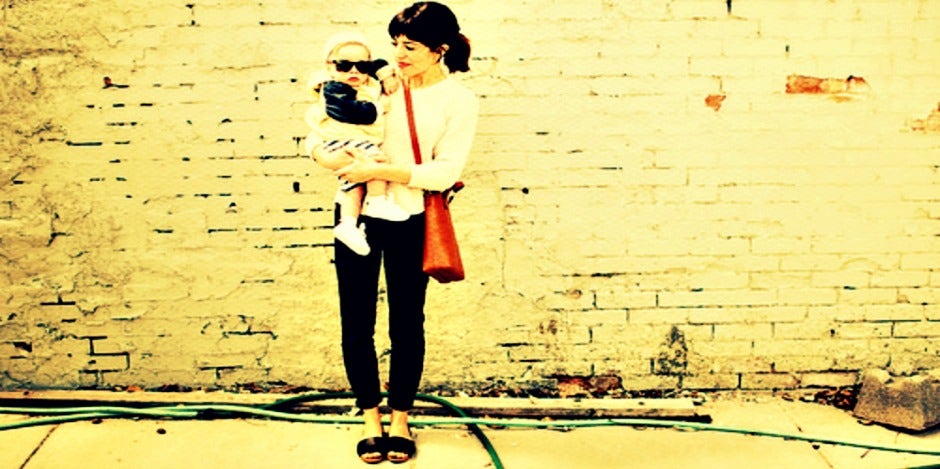10 Super Important Things To Think About BEFORE Spanking Your Kids
Spanking your kids seems like a good choice in the moment, but it is harmful for your relationship.
 Weheartit
Weheartit In the past, parents believed that punishing their children for their misbehaviors was the only way of teaching them right from wrong. Over the years, fear-based tactics such as spanking, making a child stand in the corner for long periods of time, and going to bed without any supper in the name of "for your own good."
It is true that in the short-term, these punishments may stop the behavior in question. However, in the long run, they often teach children that being manipulative, lying, and distrusting adult authority are the right options.
If you look up the word "punishment," you'll find it means to inflict suffering, pain, or loss as retribution for an offense or misbehavior. That does not sound like a healthy context for parenting. If spanking worked, why do we have to keep doing it, or else up the ante into shoving, pushing, throwing, hitting, yelling, name calling, shaming and beating our children?
Change your old school way of thinking!
This is one of the major challenges when it comes to learning effective alternatives to spanking children. The goals for raising children have not changed over the years: you want your child to grow into a competent, capable, responsible and contributing member of society. As we explore alternatives to spanking our children, we must begin with shifting the way we think about parenting, or our parenting paradigm.
Here are ten things parents (and anyone working with children) need to understand before they can really get the difference between punishment and discipline:
1. Understand that how you were parented impacts how you parent (to the positive or negative, and in ways you may not notice).
2. Recognize what, exactly, about your child's behavior stresses you out.
3. Educate yourself about child developmental behaviors.
4. Find out the connection between fear, stress and trauma.
5. Understand the impact of fear, stress and trauma on a child's behavior, and how that drives their future behavior from an unconscious place — not a place of choice.
6. Accept that mistakes your child makes are opportunities for learning. You can teach them; understand that they are not trying to make you have a "bad day."
7. Recognize that parenting and childhood is a process. Actually life is a process. We can’t get stuck in judging ourselves and our children in terms of, "today's mistake is tomorrow's failure."
8. Appreciate the power of the relationship you have with your child. For good or ill, you set the stage and they follow your lead.
9. Remember that because of that power, you can damage or strengthen your relationship with your child. How you act will dictate that.
10. Understand "good enough" parenting: you mess up 20 percent of the time, and 80 percent of the time it is good enough. You can repair these mistakes if you are willing to learn from them, practice and choose a love-based parenting approach, rather than a fear-based parenting paradigm.
Over the years of working with parents and teachers, I've learned that unless you are internally calm, it doesn't really matter what method of parenting you use. If you are not at peace within yourself, they won't work.
Why is that?
Because when an adult feels stressed with their children, they're immediately stressed because the adult is mad at them (this is their perspective, regardless of whether it is true or not). Their interaction creates a brain/body reaction, which escalates with each person feeding the other's stress levels. You can't take back hurtful things.
This is parenting from fear, stress and anger, and it results in a rupture in the parent-child relationship. The parent believes she/he is right and the child is wrong. The child believes that she/he is right and the parent is wrong. Emotions and behaviors are rigid and inflexible. The adults win, but only temporarily, because they hold the power in the relationship. But in the long, run no one wins.

